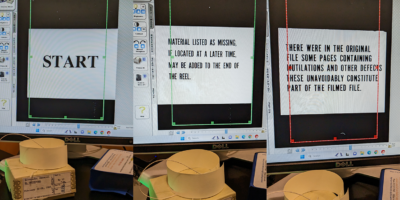By Alison Walls
All too often, those of us in the humanities find ourselves defending our existence. And when we do, we tend to emphasize the genuinely useful and readily quantifiable, but ultimately secondary, educational benefits of humanities courses. Humanists regularly highlight the “soft skills” their disciplines promote: the ability to work collaboratively, to research thoroughly, and to write and communicate clearly. Yet anybody working in the humanities knows that the real value and challenges of subjects such as English literature, history, or theatre (to name but a few) run much deeper.
In previous posts, I’ve explored this tension between “extrinsic” and “intrinsic” motivations for students, and the problem with viewing a college degree exclusively or even primarily as a “meal ticket.” I don’t doubt that college degrees increase employability—an idea that now seems to be in question—nor do I doubt that post-secondary education, including in such seemingly impractical subjects as the arts, genuinely makes college graduates more valuable employees. However, I do question whether the focus on employability and definable job-related skill sets is helpful. In fact, I suspect the opposite is true: that the relentless pushing of CV-friendly skills risks diluting the real benefits of a humanities education.
The problem of defending the humanities in apparently practical terms is compounded by the problem of unimaginative textbooks that tend to encourage regurgitation without application or analysis, despite the best efforts of the instructor, and consistently offer dry “workplace” scenarios—all while also referencing luminaries, such as Mohandas Gandhi, whose thinking extended well-beyond what to do in a touchy boardroom meeting. The vision of our students’ future conveyed by these textbooks and magnified by our scrambling claims for transferable skills is not only unambitious, but short-sighted. Gone are the days of a steady life-long career within a preexisting occupation. Instead, our students can expect to navigate multiple career paths and new, previously unimagined professions, in which deep-seated personal interest is a must.
The emphasis on employment-friendly soft skills also seems to reflect assumptions that the humanities are easier than STEM subjects—a rhetoric that devalues our students’ degrees at the same time we try to convince them of their real-life value. Who, after all, would equate clear sentence structure with genome sequencing? Many students have received the message, too. The flurry of note-taking whenever I do offer a definitive writing strategy is remarkable and vaguely disheartening, since it indicates students’ preference for unambiguous and pre-approved answers—a preference that may also inform the reverence accorded the sciences. Ironically, students frequently shy away from open-ended exploration—the very aspect of the humanities that raises the intellectual complexity of subjects such as world literature, sociolinguistics, or American history to the same daunting heights as biology, physics, or calculus. They have absorbed the message that studying the humanities marks them as lesser than their peers in other departments. This reinforcement of subject hierarchies is even more damaging to students at community colleges who already suffer under the weight of institutional hierarchy.
The thing is that greater ability in writing and communication will naturally develop through rigorous study of the subject itself, along with other valuable work-related skills, but this doesn’t work in reverse. Studying note-taking or time-management strategies or how to format an assignment doesn’t develop the abilities to think critically or lead to an enhanced understanding of the human condition.
My own field is theatre, and in a recent piece, Charles McNulty captured many of my feelings with regards to both the arts and arts education in “How Theater Should Respond to a Democracy in Meltdown”. McNulty points to the compulsion of theatre artists, much like humanists, to default to a practical defense. In the case of theatre, this defensiveness frequently results in a pious underscoring of the work’s relevance. Of course, responding to the political moment is sometimes necessary, but holding it up as the primary value of theatre overshadows the much deeper and more enduring—albeit harder to identify—worth of theatre. As McNulty puts it, “[m]ore than telling us what to think, theater artists retrain us how to think by jarring us out of our calcified patterns of understanding.”
Like seeing good theatre, the study of the humanities stimulates the mind in ways that extend their benefit well beyond the particular subject of study and it is this that we should be putting at the forefront in the battle to give such classes their full value. Incidentally, many in the tech industry seem to agree, and there is no shortage of studies demonstrating the general benefit of arts education on all academic achievement, such as this one on at-risk youth commissioned by the NEA. The same study notes the arts’ positive effect on civic engagement, and, although admittedly not quite the same thing, the fact that “complicit” saw the greatest spike in dictionary searches in 2017 is just one tiny indication for me of the broader importance of humanities education. Again, to be clear, it is not my intent to dismiss the job-skills aspect of humanities classes, but rather to rightfully place them as secondary to deeper benefits. We can trust that students will build these skills as a natural side-effect in the more engaging pursuit of real scholarly challenges.
Alison Walls is a Ph.D. candidate in Theater at the Graduate Center and a Humanities Alliance Teaching Fellow; she is also a contributing writer for Visible Pedagogy.









